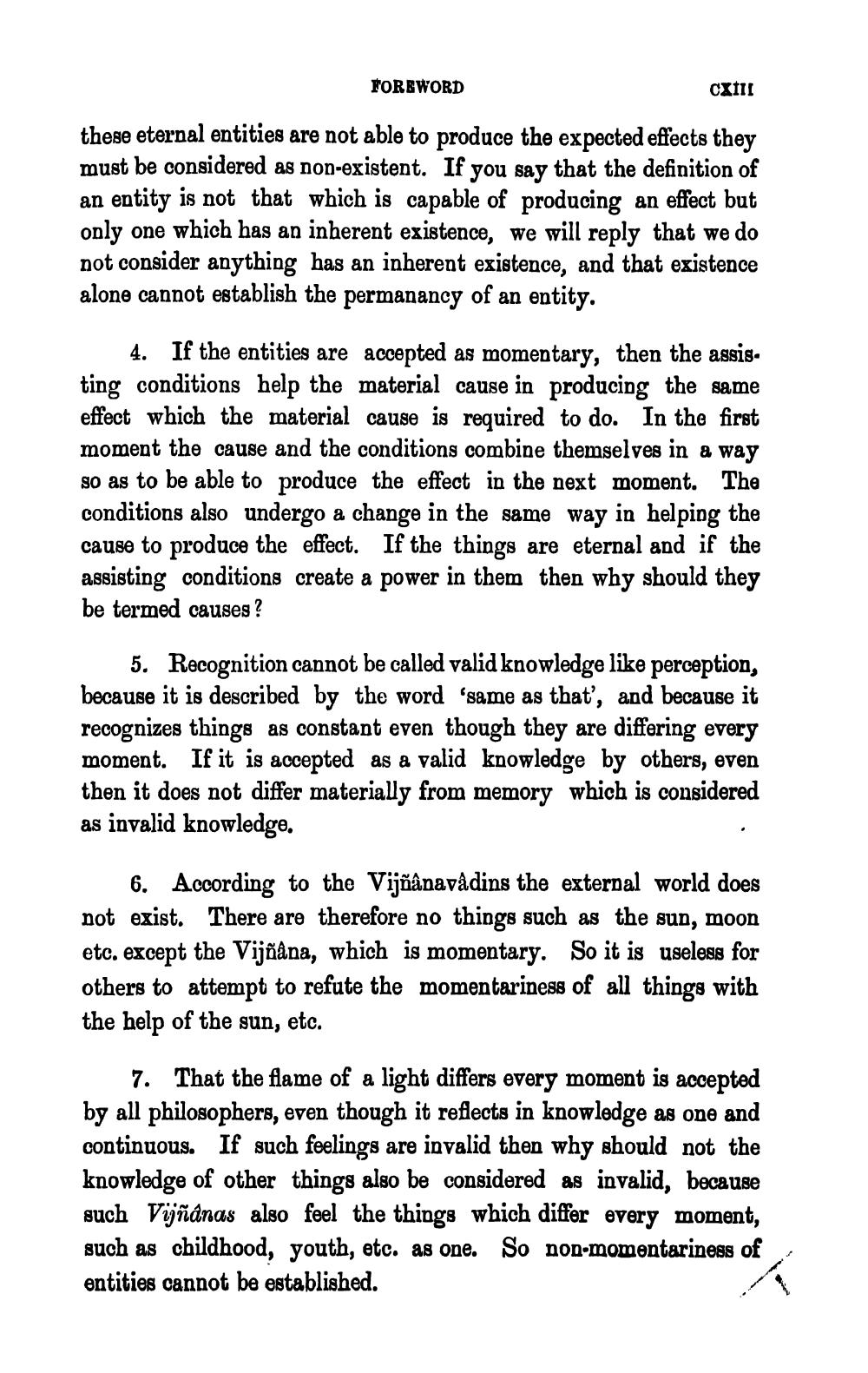________________
TOREWORD
CXII
these eternal entities are not able to produce the expected effects they must be considered as non-existent. If you say that the definition of an entity is not that which is capable of producing an effect but only one which has an inherent existence, we will reply that we do not consider anything has an inherent existence, and that existence alone cannot establish the permanancy of an entity.
4. If the entities are accepted as momentary, then the assis. ting conditions help the material cause in producing the same effect which the material cause is required to do. In the first moment the cause and the conditions combine themselves in a way so as to be able to produce the effect in the next moment. The conditions also undergo a change in the same way in helping the cause to produce the effect. If the things are eternal and if the assisting conditions create a power in them then why should they be termed causes ?
5. Recognition cannot be called valid knowledge like perception, because it is described by the word 'same as that', and because it recognizes things as constant even though they are differing every moment. If it is accepted as a valid knowledge by others, even then it does not differ materially from memory which is considered as invalid knowledge.
6. According to the Vijñânavadins the external world does not exist. There are therefore no things such as the sun, moon etc. except the Vijñana, which is momentary. So it is useless for others to attempt to refute the momentariness of all things with the help of the sun, etc.
7. That the flame of a light differs every moment is accepted by all philosophers, even though it reflects in knowledge as one and continuous. If such feelings are invalid then why should not the knowledge of other things also be considered as invalid, because such Vijñanas also feel the things which differ every moment, such as childhood, youth, etc. as one. So non-momentariness of entities cannot be established.




